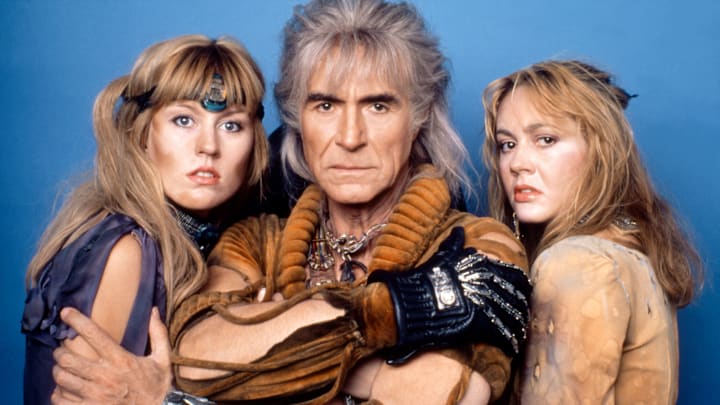When Star Trek II: The Wrath of Khan was released in 1982, it changed Star Trek forever, arguably saving The Original Series from becoming a one-hit wonder. From its costumes and powerhouse performances, to its Hornblower-inspired obsession with naval warfare, to its themes of mortality and existentialism, it set the high-water mark for quality Star Trek that still remains four decades later.
But there is one aspect of Star Trek II that sometimes flies under the radar: it launched the career of James Horner, who gave us the music of Titanic, Apollo 13, Avatar, The Amazing Spider-Man, and many other classic films.
If Star Trek II launched Horner into the movie-music stratosphere alongside the likes of Jerry Goldsmith and John Williams, it would have comfortably been enough to change the sound of films forever. But for good and for ill, Horner was not like most of his contemporaries. While Goldsmith and Williams had clearly identifiable styles — Williams in particular — Horner took his musical stylings to a level of pop-culture ubiquity that has yet to be matched.
While Alan Silvestri or Michael Giacchino might be known for repeating their musical techniques throughout their careers, Horner is the only film composer whose oft-repeated musical ideas were lengthy and notoriously severe enough to merit their own moniker: Hornerisms.
And while Star Trek II introduced us to several Hornerisms, the likes of which would appear everywhere from Cocoon to Andrew Garfield’s The Amazing Spider-Man, perhaps no musical idea in all of film history would go on to achieve the notoriety of Horner’s four-note “danger motif."
If you think you don’t know the four notes in question, chances are that you do. After flirting with the idea in early films such as Battle Beyond The Stars and Wolfen, the “danger motif” was given a proper introduction in 1982 as the musical herald for Khan’s commandeered Starfleet ship, the USS Reliant, as it lays an ambush for the USS Enterprise.
If you think you have not heard the danger motif outside of Star Trek II, you likely haven't seen Willow, Honey, I Shrunk The Kids, Sneakers, The Mask Of Zorro, its 2005 sequel, The Perfect Storm, Avatar, and its sequel.
Additionally, you would not have seen Star Trek; Strange New Worlds (composed by Nami Melumad) where the musical homage to Horner heralds the Gorn, or Star Trek: Picard (composed by Stephen Barton and Frederik Wiedmann in season 3) where the music accompanies the Shrike on its pursuit of the USS Titan-A. Even this year, the first trailer for Avatar: Fire and Ash used those four notes to help sell tickets, long after Horner's death in 2015, because they have become so associated with the franchise.
And perhaps herein lies the great paradox of Horner’s musical career: he plagiarized himself more constantly, conspicuously, and shamelessly than any composer in the history of the medium. Yet, he remains one of the greatest musical geniuses ever to do it. His music is always thematically intelligent, with intricately interweaving melodies as good as anyone has ever written them.
Unlike Goldsmith, who spent a career toiling away on movies that were so often beneath him — Star Trek: First Contact being the only of the Trek films he composed that was an indisputable critical success — Horner was able to transcend the B-movie shlock that dominated his early career. Horner went on to craft a legacy that, in the words from his and lyricist Will Jennings Oscar-winning pop song, “will go on.”
But most importantly, he created a heartfelt emotional palate that ranged from tender and heartbreaking to epic and soaring, without ever sacrificing that raw, emotional vulnerability that even John Williams could rarely compete with. No matter the movie, he always sounded like he was pouring his heart out.
In so doing, he rose head and shoulders above his endless list of “Hornerisms” to create a transcendently authentic musical identity that redefined the sound of Star Trek, and then cinema itself. We were all lucky to have him.
For more Star Trek content, and to share your thoughts and comments on James Horner's musical career, visit the Redshirts Always Die Facebook and X pages.
